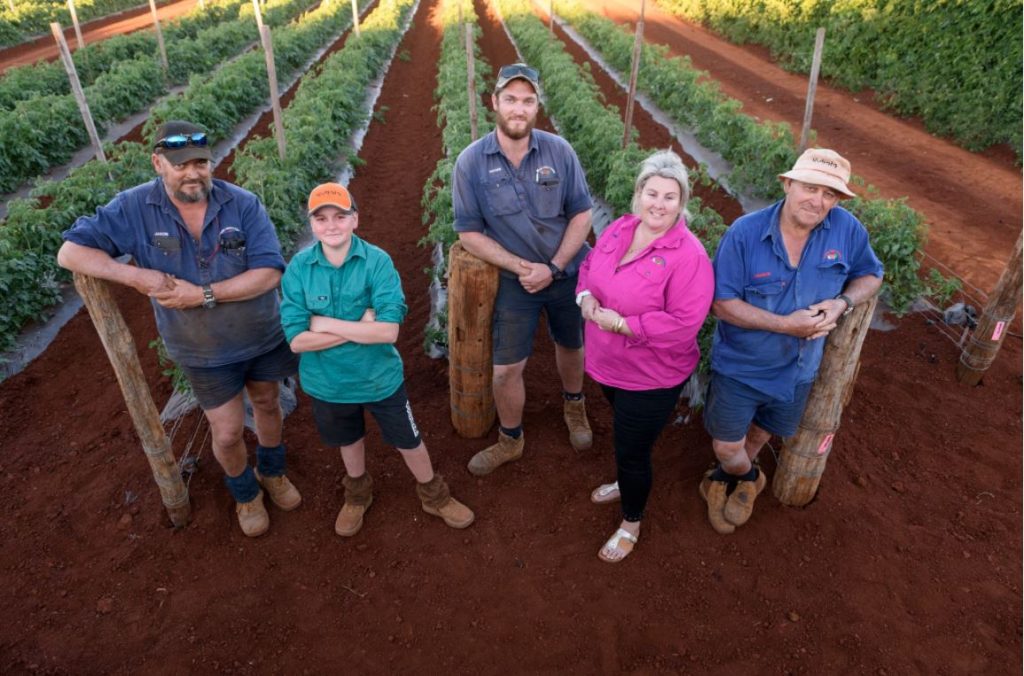
Annie Attard is the vice-president for Women in Sugar as well as a Director at both Bundaberg Sugar Services and Bundaberg Fruit and Vegetable Growers.
Her business, Attard Family Farms, was a finalist in the recent Queensland Horticulture Export Awards and has become one of the first Reef Certified farms in the Wide Bay-Burnett region.
VegNET – Wide Bay-Burnett Regional Development Officer Bree Grima sat down with Annie for a brief chat about the business which was featured in AUSVEG magazine, Vegetables Australia.
Can you provide a brief overview of your business and the produce that you grow?
Attard Family Farms is a fourth-generation farming agribusiness that has been based in the Bundaberg region for over 60 years.
Originally from Malta, we predominantly grow sugarcane, rockmelon, macadamias, cherry tomatoes and have previously grown zucchini and baby capsicums.
Our operation is on approximately 320 hectares.
The business sells into central markets in Brisbane, Sydney, Melbourne, Newcastle and Adelaide and we export to New Zealand, Japan, and Singapore.
What challenges do you face as a vegetable grower?
Mostly water challenges: the cost and availability of water. Ongoing drought conditions have made it very difficult, and the increased cost of inputs has made it more challenging.
Availability of labour is also an issue – we’ve always prided ourselves in employing local workers, with supplementation from working holiday makers.
Combined with increased regulation and lack of Government support, there are many challenges that we face.
How do you manage these challenges, or try to overcome them?
Being a family-run business, the workload is shared. The business is also looking to diversify.
What new innovations, research and/or practices has your business implemented recently?
The business is accredited to Freshcare; the Harmonised Australian Retailer Produce Scheme (HARPS); Hort360; and the Smartcane Best Management Practice program (Smartcane BMP).
Through the Reef Trust – Great Barrier Reef Foundation Partnership, we have installed water sensors and monitors that survey our water use. This reduces over-watering.
How do you maintain your disease resistance and ongoing sustainability of the farm?
The business has a dedicated spray program overseen by our agronomist, and we implement rotational farming between the sugarcane and ground crops.
Do you have future plans for the farm – is there a particular direction you’d like to pursue? Where would you like to see the business develop across the next decade?
The business is slowly diversifying to macadamias, which require less labour and guarantees viability and sustainability for future generations.




